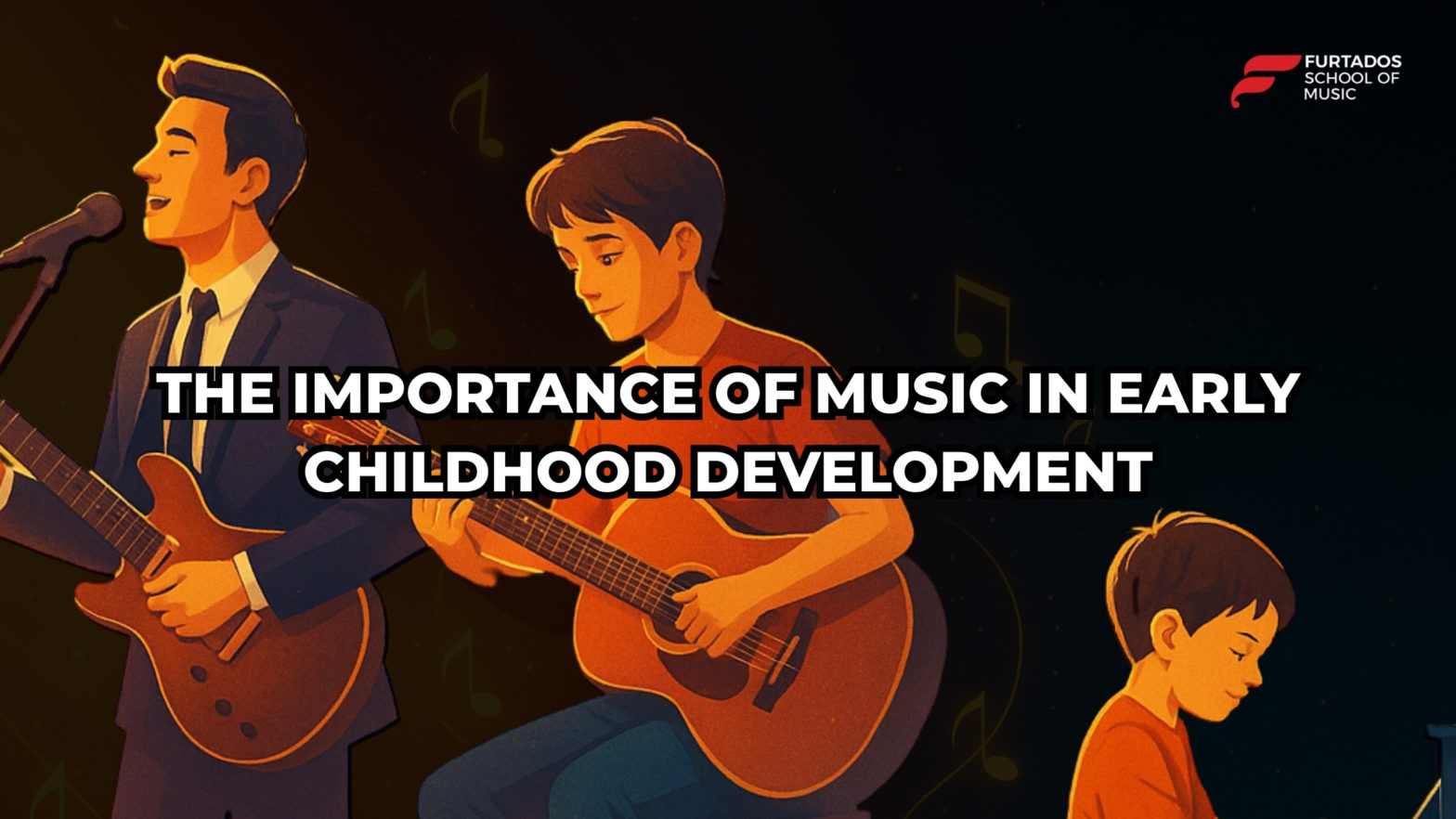Music is more than just a source of entertainment—it’s a powerful developmental tool, especially in the early years of life. From cooing lullabies to banging on toy drums, children are naturally drawn to rhythm and melody. But beyond joy and play, music lays the foundation for crucial cognitive, emotional, and social skills (Early Childhood Development).
Understanding the role of music and child development is essential for parents and educators alike. Introducing children to music early not only nurtures their creative spirit but also helps build brain power, discipline, and emotional intelligence.
1. Music Boosts Brain Development
Studies show that exposure to music at a young age accelerates brain development, particularly in the areas responsible for language acquisition, reading skills, and mathematical understanding. In fact, structured early childhood music education has been linked to improved memory, attention span, and auditory processing.
When children clap to a beat, match pitches, or learn a song’s lyrics, they’re not just having fun—they’re training their brains to think critically, listen attentively, and respond more precisely. Music helps form the neural connections needed for more advanced learning later on.
2. Language, Literacy, and Communication
Music enhances early language skills by encouraging children to listen closely, recognize patterns, and differentiate sounds. Singing helps expand vocabulary and improves pronunciation, while rhythm games sharpen auditory memory.
Think about a toddler learning to sing the ABCs or nursery rhymes—they’re developing rhythm, timing, and pronunciation all at once. This link between music and child development becomes even more powerful as children transition to school, where strong communication skills become essential.
3. Emotional and Social Growth
Music is a natural emotional outlet. It helps children identify, express, and regulate their feelings. Singing a happy song can lift moods, while slower melodies can calm nerves and aid in emotional self-regulation.
In group settings, early childhood music education also promotes teamwork, cooperation, and empathy. When children perform together—whether through singing, dancing, or playing instruments—they learn to take turns, listen to others, and respect different perspectives. These early social skills create the foundation for positive interactions later in life.
4. Physical Coordination and Motor Skills
Music often invites movement—clapping, tapping, dancing—which enhances gross and fine motor skills. Playing instruments like tambourines or small drums helps improve hand-eye coordination, grip strength, and timing.
This is one of the benefits of music for toddlers that often goes unnoticed. Activities that combine music and movement build physical awareness while supporting emotional and intellectual development. It’s a holistic way to engage a child’s entire body and brain.
5. A Creative Head Start
Children are naturally imaginative, and music fuels that creativity. Whether improvising on a xylophone or making up lyrics to a favorite tune, music encourages experimentation and self-expression.
Early exposure to music also nurtures discipline and focus. Learning to play an instrument teaches persistence and builds confidence as children accomplish small musical goals. These traits benefit them not just in music, but in academics and life.
Why Parents Should Enroll Their Children in Music Early
At Furtados School of Music (FSM), we’ve seen firsthand the transformative effects of music on young learners. Our Early Childhood Development programs are designed specifically for children aged 3 to 7, combining structured learning with joyful exploration. Through singing, rhythm games, and interactive instrument play, we tap into the natural connection between music and child development.
Our expert faculty members specialize in nurturing young talent with patience, creativity, and care. Whether your child is shy, expressive, analytical, or imaginative, music offers a personalized path for growth. The benefits of music for toddlers aren’t just anecdotal—they’re scientifically backed, deeply enriching, and life-enhancing.
Conclusion
Music isn’t just a hobby—it’s a developmental powerhouse. From cognitive boosts to emotional growth, the impact of music in Early Childhood Development is profound and lasting. By introducing your child to music now, you’re not just giving them a skill; you’re unlocking a world of opportunities.
If you want your child to grow up confident, expressive, and cognitively enriched, start with music. Explore the early learning programs at FSM and watch your child thrive in harmony—one note at a time.
